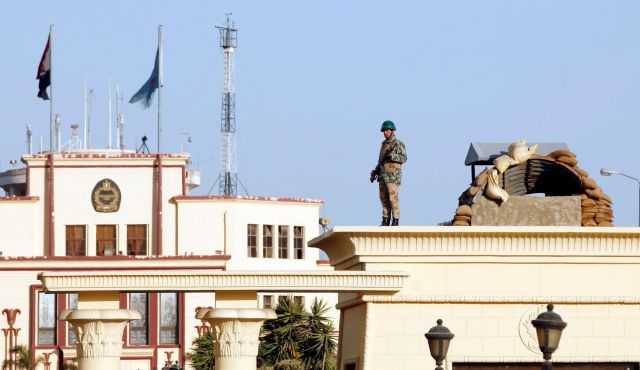Egypt’s turning on Hamas won’t solve Israel’s Gaza problem
By Zvi Bar’el/Haaretz/ Feb. 01, 2015
For the first time, an Arab leader is challenging the view that ‘resistance’ organizations fighting Israel necessarily serve Arab interests.
“A war is being waged against Egypt,” Egypt’s President Abdel al-Fattah al-Sissi declared before returning from this weekend’s African Union summit in Ethiopia. “The army will set the rules and the principles the country will live by, and it is prepared to pay the price.” A heavy price: Last week, at least 30 military personnel and civilians were killed in one of the worst terror attacks ever on the army in Sinai. Two days later, a bomb exploded on an Egyptian train.
Terror has hit Cairo and Alexandria as well, and also the Libya border area. The army has had some success in this war of attrition, whose broad dispersal makes it difficult to defeat. The army has cleared a one-kilometer swath along the border with Gaza, leveling over 1,200 homes, and destroyed tunnels under the border. It launches frequent attacks on terrorist strongholds in Sinai, staffs area roadblocks and has carried out numerous arrests. But that has not stopped the terror cells, which depend in part on weapons smuggled from Libya and supporters who do not live in Sinai.
The alleged enemy is well-defined: The Muslim Brotherhood and its progeny, such as Hamas, have become the “usual suspects” — even when Ansar Beit Almaqdis (“champions of Jerusalem”), which has shifted its allegiance from Al-Qaida to Islamic State (also known as ISIS or ISIL) claims responsibility for attacks. The Muslim Brotherhood has been declared an illegal terror organization, and on Saturday an Egyptian court also declared the military wing of Hamas a terrorist movement.
That decision, which came a year after the court declared Hamas an organization that supports terrorism and barred it from operating in Egypt, will not provide a turning point in how terrorism is fought. Even in the past, Egypt had no problem in arresting Hamas activists or putting them on trial. And the prosecution of deposed President Mohammed Morsi is based in part on the assistance that he received from Hamas when he fled imprisonment in January 2011. Even without a judicial decision, Egypt has long sketched out its aims around Gaza and the Hamas regime. The closure of the Rafah crossing between Gaza and Egypt is an inseparable part of this fight, as is the ongoing deferral of the convening of a conference on the reconstruction of the Gaza Strip.
But the political aspects of this decision are no less important that the military ones. For the first time, an Arab leader is challenging the common view that “resistance” organizations that are fighting Israel necessarily serve Arab interests. The “sanctity” of the struggle against Israel is no longer justification for the existence of an organization that turns its arms against Egypt. Here Sissi is making it clear, without mincing words, that the Palestinian issue is important in his view only to extent that it doesn’t threaten Egypt. Any Arab or Muslim country that wishes to provide aid to the Gaza Strip or Hamas now faces a dilemma in that Egypt would now consider such assistance to be support for a terrorist organization.
Israel can indeed be satisfied with the fact that Egypt is the only Arab country that has declared Hamas as a terrorist movement. (The Muslim Brotherhood is considered a terrorist movement in Saudi Arabia and the United Arab Emirates, in addition to Egypt). But the Egyptian designation will not solve Israel’s own problems with Hamas. In Israel, apparently more than in Egypt, it is clear that economic pressure on the Gaza Strip, the continued blockade and delays in reconstruction in the territory could reignite the strip and even lead to another round of violence on top of last summer’s war. Not only are Hamas spokesmen warning over such a prospect; so are senior officials in the Israeli defense establishment.



















